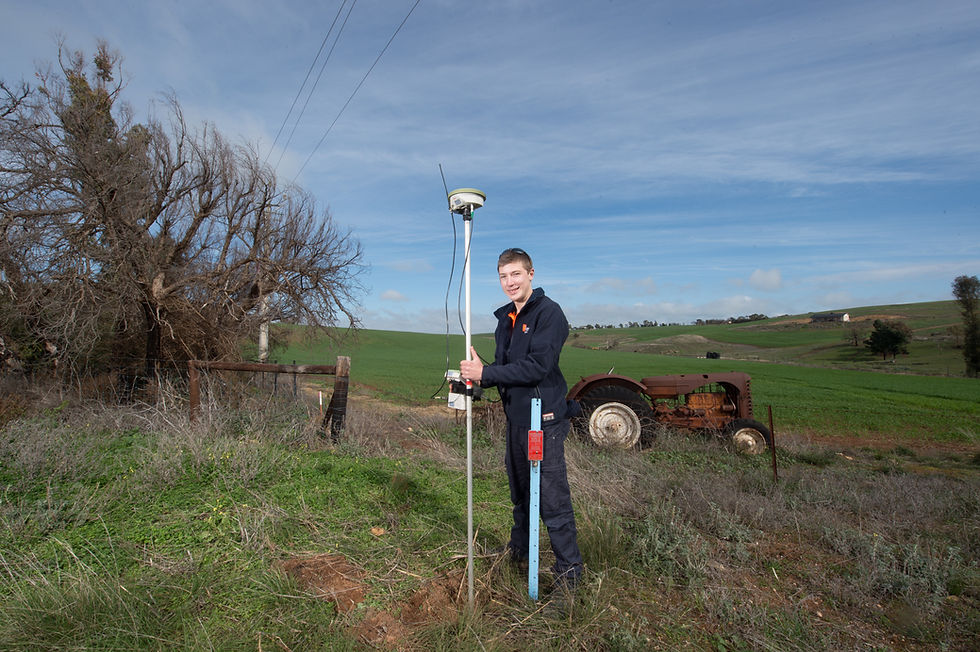Masters Inspiration.
- Oct 18, 2018
- 3 min read
Updated: Jan 11, 2019
The decision to continue your studies and move into a Masters degree is a big one, Ashby Schilling shares his experiences and why it's a strong step towards your ultimate surveying adventure!

What made you want to study surveying?
At school my favourite subjects were always geography (specifically the ability solve real world problems from a mapping perspective) and design & technology (the hands-on application of different technologies). From talking to people in the industry, attending career expos and researching study options; surveying struck me as an incredibly diverse career with a range of specialisations using the very latest technology. Furthermore surveying offered a great mix of outdoor and indoor work, as a surveyor you get to visit new places on a daily basis; very appealing to those who don’t want to be stuck inside… Best of all it is financially rewarding.
What motivated you to do your masters?
My long term goal is to become a licensed cadastral surveyor in South Australia. Cadastral surveying is the discipline that deals with property boundaries and land ownership. It is a profession steeped in history, stretching back in South Australia to Colonel William Light in 1836, in many cases you are literally retracing the steps of the first settlers. As a licensed cadastral surveyor, you are among the few people legally able to define property boundaries. The first year of the Master of Surveying program is required to enter a training agreement which delivers the practical experience necessary to gain your license.
What is your vision for your surveying career?
Once finished my master’s degree my goal is to gain experience in a range of surveying fields including engineering/construction. While cadastral surveying is my ultimate plan, I feel it is important to gain a diverse skill set while working toward your license. It also opens your horizons to the fast paced world of surveying technologies, particularly laser scanners and drones which are becoming increasingly used throughout the surveying industry.
What challenges have you faced as a student?
The most challenging aspect of student life is maintaining a balance between study, work and relaxation. Like any degree, as you progress through your university studies the workload increases, however you quickly become attune to course expectations. Time management and organisation is the key to success. As a surveying student you will be part of a tight-knit group; the friendships you form with classmates and teaching staff go a long way to helping you succeed.
What advice would you give to those thinking of studying surveying?
If you are currently completing secondary school looking at a career in the surveying industry, try to tailor your subject choices to maths, physics and geography (although not essential). It is definitely worthwhile undertaking work experience with a surveying firm, the Surveying and Mapping SA website is a great place to start. Once you begin studying my biggest piece of advice is to get involved in the surveying industry beyond your day-to-day university life. The South Australian surveying industry is very well connected, putting your face out there shows that you are interested and puts you well on the way to obtaining part time work as a surveying assistant. Nothing can prepare you for the Master of Surveying better than gaining real-world experience while you study. Getting your foot in the door is easy; simply join the Surveying and Spatial Sciences Institute Young Professionals (SSSi YPs) and take part in the variety of networking opportunities on offer.
What advice would you give to bachelor students who are thinking of doing their masters?
Obviously if you are interested in becoming a licensed surveyor, the Master of Surveying is a necessity. However, the master’s degree offers much more beyond cadastral surveying, including geodetic science (the study of the shape of the earth) and engineering surveying (including mining and hydrographic). The postgraduate degree also makes you much more employable by greatly expanding the topics taught during the undergraduate.



Comments